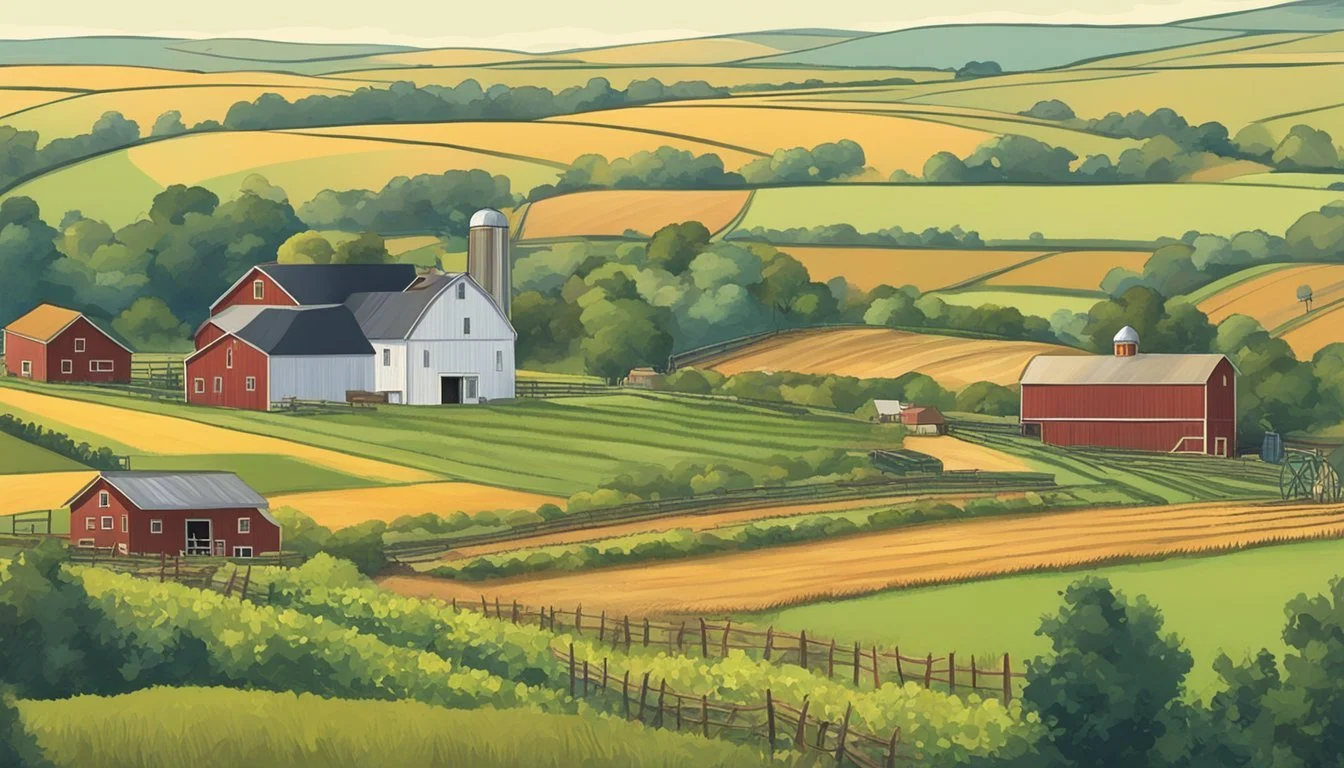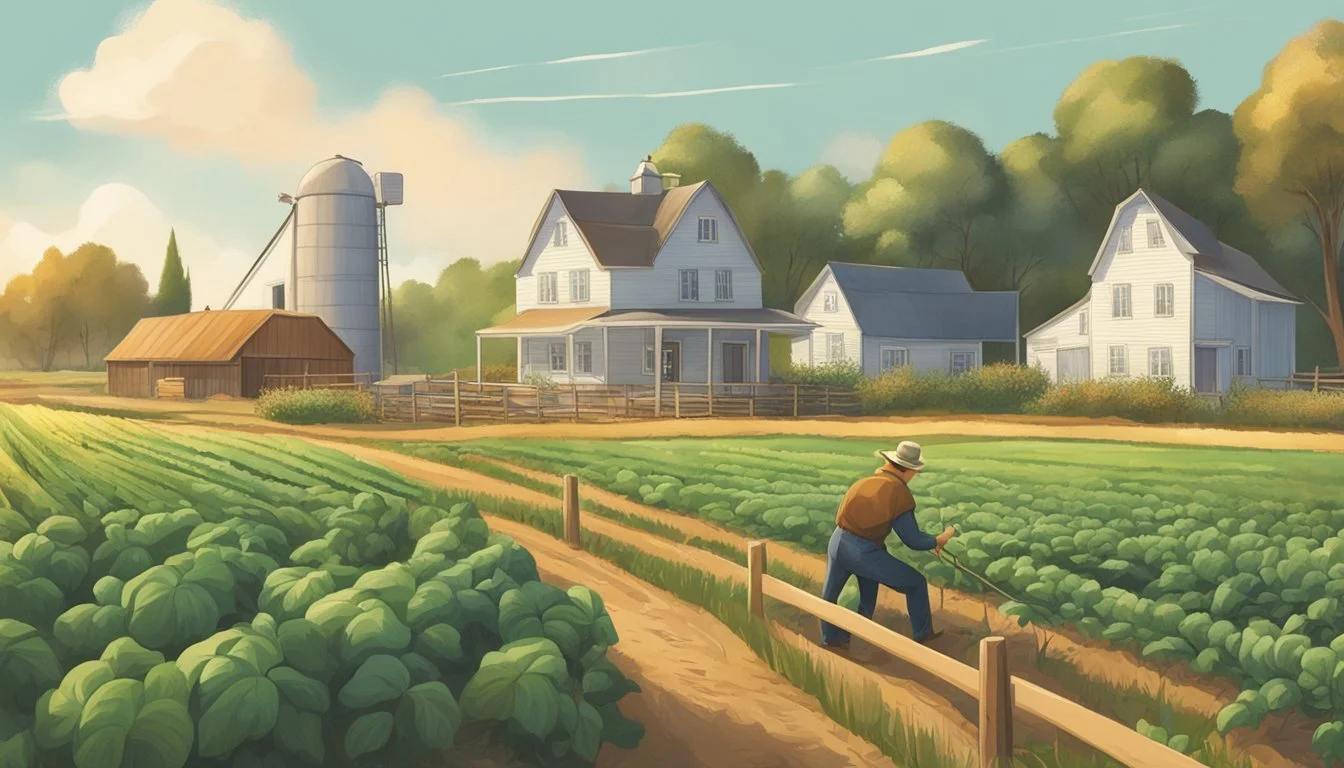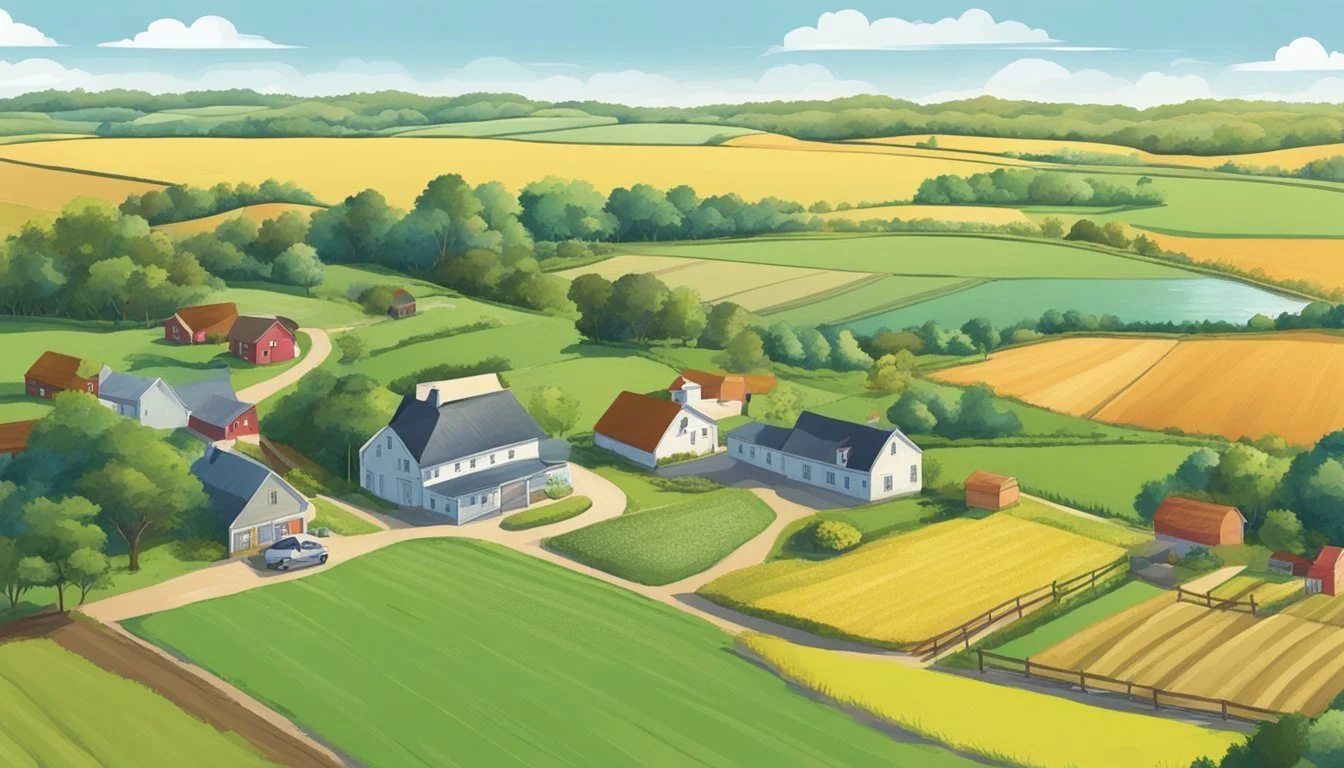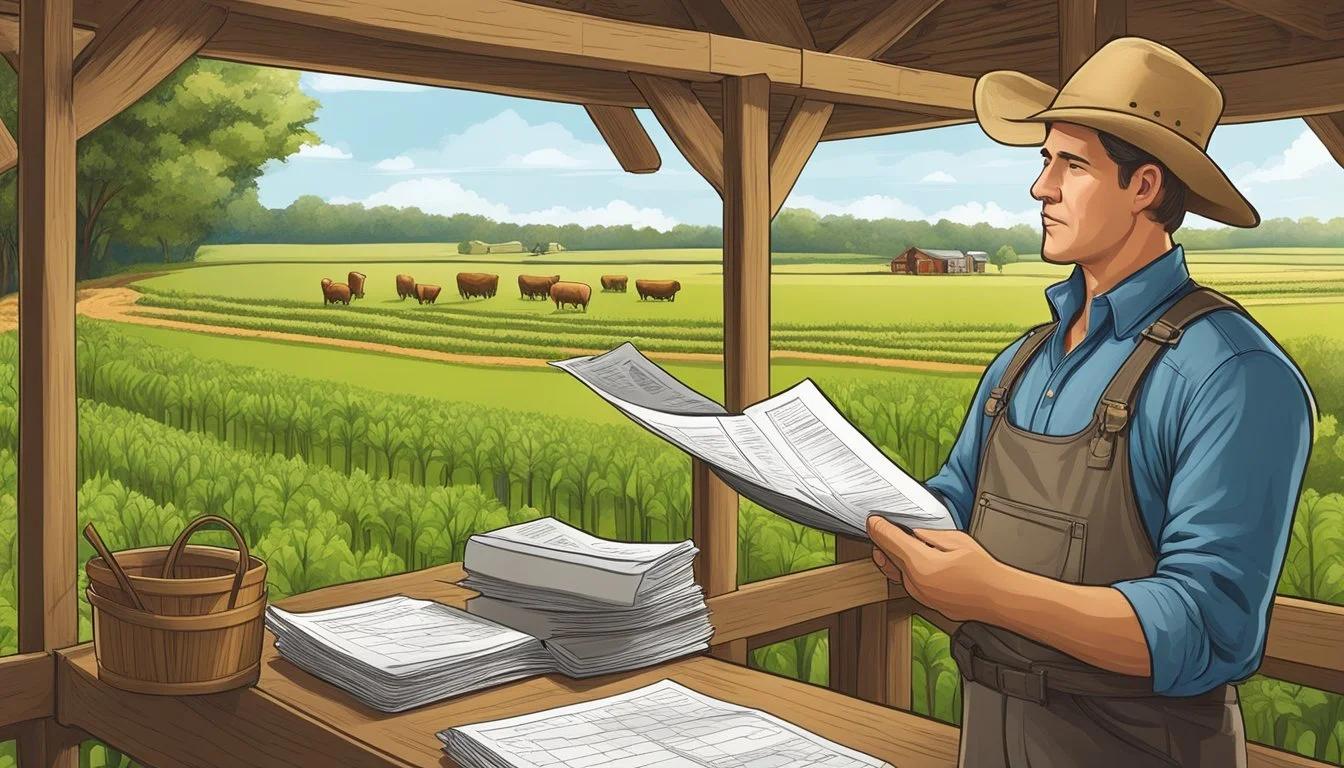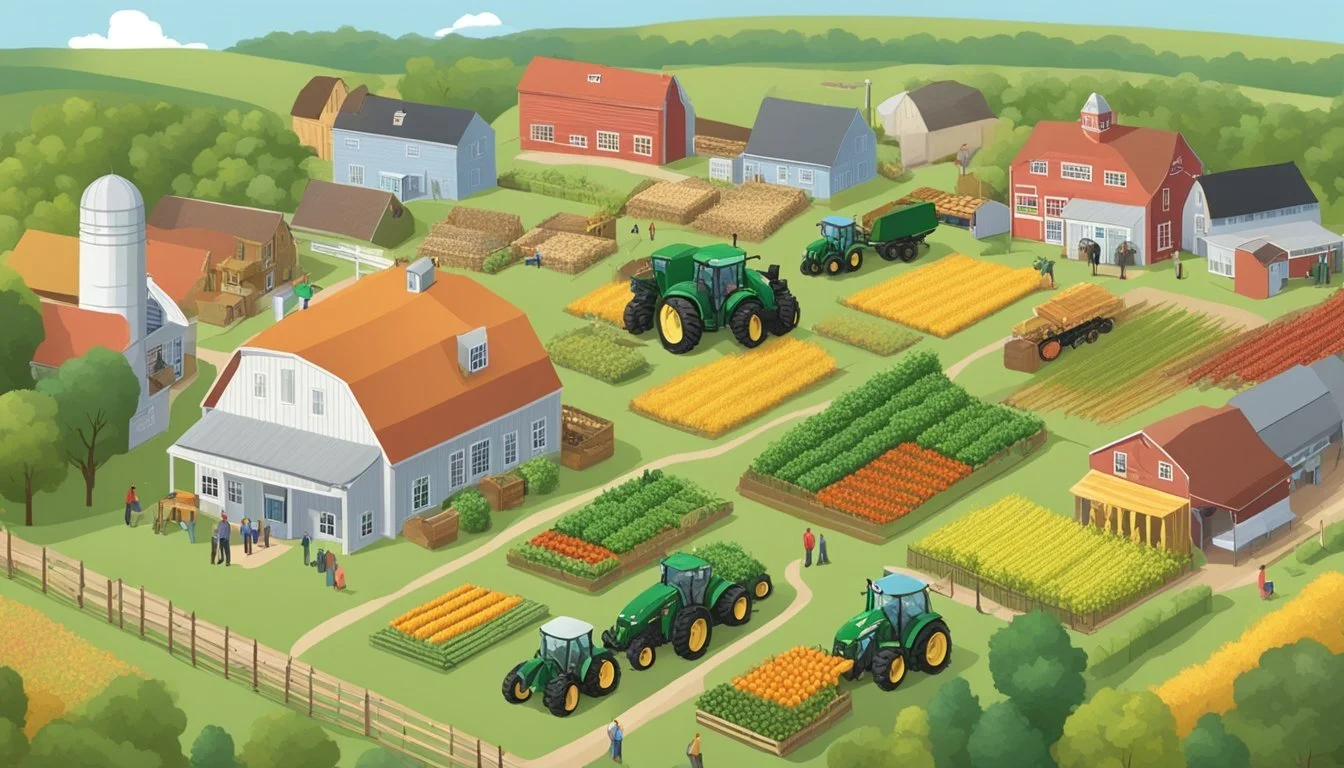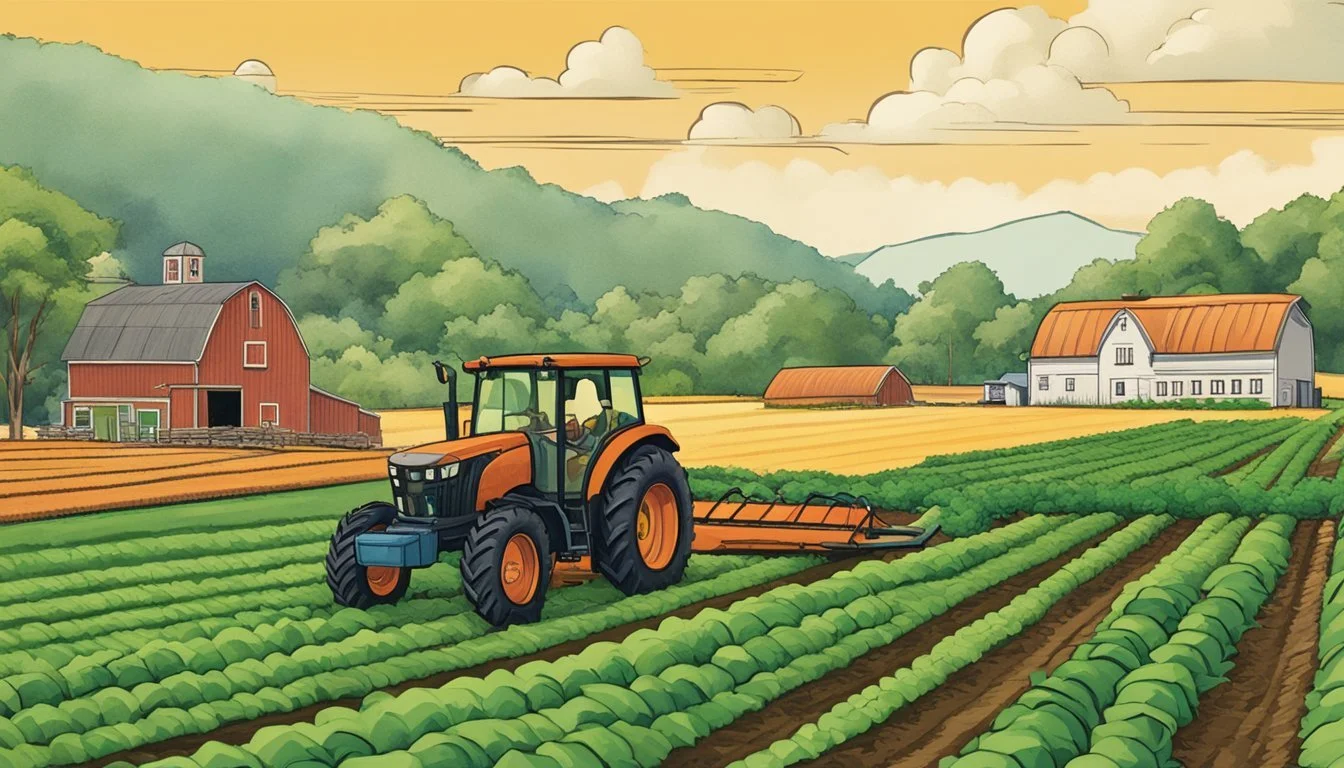Right to Farm Law in Delaware
Understanding Agricultural Protections and Limitations
The Right to Farm Law in Delaware serves as a legal shield for agricultural activities by granting farmers immunity against nuisance lawsuits, provided they meet certain criteria. Enacted in 1980, Delaware’s version of the law was aimed at preserving the state's agricultural heritage in the face of expanding nonagricultural land uses. Agriculture is a vital part of the state's economy and identity, with a history deeply rooted in farming traditions and practices.
By stipulating conditions that must be satisfied, the law endeavors to balance the needs of agricultural producers with those of neighboring properties. It requires that farming operations be established for at least one year and be in compliance with applicable state and federal regulations. This establishment not only promotes certainty for farmers but also sets clear expectations for land use within agricultural zones.
Despite Delaware's proactive measures to protect its agricultural resources, the state has witnessed a decline in the number of farms and farm acreage over recent years, indicating ongoing challenges within the industry. The Right to Farm Law remains a critical component of Delaware's approach to maintaining its agricultural landscape and supporting the farmers' ability to work without undue legal pressures from changes in land use around them.
Historical Context and Evolution
The historical development of Right to Farm Laws in Delaware reflects a broader national trend aimed at protecting agricultural operations. These laws have been shaped by the interplay between federal directives and state-specific legal frameworks.
Origins of Right to Farm Laws
Right to Farm Laws originated as a response to conflicts that typically arise between agricultural and non-agricultural land uses. The primary motive was to safeguard farms from nuisance lawsuits, as urban and suburban development encroached on rural areas. Delaware passed its initial right-to-farm law in 1980, recognizing the necessity to defend the state's agricultural heritage and resources. Over time, these laws have evolved, yet they maintain the core purpose of supporting farmers by providing a legal defense against claims brought forth due to changed conditions around existing agricultural operations.
National and State Law Intersections
Federal laws often establish broad protections and policies for agriculture, influencing state and federal laws interactions. Delaware's right-to-farm statute, while state-specific, exists within this larger framework set by federal law. It provides a defense specifically when a nuisance claim stems from changed conditions surrounding an established farm, which is a commonality in most state versions of right-to-farm laws. The historical interplay between federal laws and the state's right-to-farm provisions highlights an ongoing effort to balance the interests of agricultural conservation with the pressures of development and urbanization.
Key Provisions of the Delaware Right to Farm Law
Delaware's Right to Farm Law codifies protections for agricultural operations, offering a defense against nuisance lawsuits and preserving farming activities within the state.
Definition of Agricultural Operations
Under Delaware's Right to Farm Law, agricultural operations encompass a broad range of activities integral to farming and forestry. These activities include, but are not limited to, the production of crops, poultry, livestock, as well as the processing and packaging of these agricultural products. Additionally, forestry activities are included under this definition.
Agricultural Operations Protection
The law ensures protection for agricultural operations by granting them the right to undertake farming and forestry activities without the threat of nuisance lawsuits from neighboring nonagricultural land uses. This protection applies only if the agricultural operation has been ongoing prior to any changes in the surrounding land use and if it complies with state and federal laws.
Legal Protections and Limitations
The Right to Farm law in Delaware offers legal protections to agricultural operations by limiting nuisance claims that can be filed against them. These provisions strike a balance between the interests of farmers and their neighbors.
Nuisance Claims Defense
Under Delaware’s Right to Farm law, agricultural operations receive protection against lawsuits claiming that their activities constitute a private nuisance. This defense applies when farming practices are established prior to surrounding nonagricultural land developments. The core of this protection lies in the concept that non-farming neighbors are typically the newer arrivals to the area, with the farm operations having precedent.
Establishment: A farm must be established before the complaining party's move-in date.
Consistency: The farming operation must have been consistent over time.
The law foresees that regular agricultural activities may produce noise, odor, dust, and other conditions that might be deemed nuisances under other circumstances; however, when conducted as part of a recognized agricultural practice, these are not considered actionable under nuisance lawsuits.
Parameters of the Absolute Defense
Not all defense claims under Delaware’s Right to Farm statute are absolute. There are certain parameters within which the farm must operate for the defense to be valid:
Reasonable Farming Practices: The farming operation must use practices that are considered reasonable and established by the farming community.
Public Health and Safety: No operation can claim an absolute defense if it endangers public health and safety.
The absolute defense is a pivotal component that delineates when the Right to Farm can be used effectively as a shield against nuisance claims. It ensures that while farming operations can defend their practices, they must still adhere to responsible and safe farming standards.
Planning and Zoning Considerations
In Delaware, the symbiosis between agricultural activity and land-use laws is fundamental. Two key frameworks guide this relationship: land use regulations that manage the development and use of rural areas, and the Agricultural Lands Preservation Act, which aims to safeguard agricultural land.
Land Use Regulations
Delaware's planning and zoning ordinances are vital instruments in shaping land use across the state. They define permissible uses on various parcels, balancing the needs of development against the protection of agricultural interests. Zoning serves to separate conflicting land uses, establish property development standards, and ensure orderly growth. In the agricultural context, they help to minimize conflicts between farming operations and non-farming neighbors by designating specific zones where agricultural activities are encouraged and protected.
Agricultural Lands Preservation Act
Enacted on July 8, 1991, Delaware's Agricultural Lands Preservation Act plays a pivotal role in maintaining the agricultural integrity of the state. This legislation provides a framework for conserving, protecting, and improving agricultural land. Owners of agricultural land may seek the establishment of an Agricultural Preservation District if they meet a threshold of 200 usable acres, thereby conferring a degree of permanence to the land’s agricultural use despite external development pressures. The Act serves to curb haphazard land conversion by prioritizing agricultural land use in preservation areas, thus fostering a stable agricultural economy.
Regulation of Specific Farming Practices
Delaware's Right to Farm Law encompasses specific regulations tailored to promote sustainable agricultural practices, protecting farms from nuisance lawsuits while ensuring compliance with environmental and safety standards.
Livestock Management
In Delaware, livestock refers to animals raised in an agricultural setting. Management practices for livestock must comply with state laws, especially those pertaining to animal health and welfare. The Right to Farm Law provides that agricultural operations that have been established for more than one year are protected, provided they adhere to generally accepted agricultural practices, which include humane treatment and proper care of animals.
Crop Production
Crop production within Delaware must align with agronomic measures set forth by the Department of Agriculture to both maximize yields and mitigate environmental impacts. Farms are expected to follow safety regulations for the handling and application of pesticides and to employ soil conservation techniques to prevent erosion and maintain soil health.
Nutrient Management
The development and implementation of a robust nutrient management plan is central to Delaware's approach to agriculture. Such plans are required to optimize the use of manure and fertilizers while minimizing their impact on the environment. Farmers must carefully monitor nutrient levels in the soil, which often involves:
Regular soil testing
Precise application of nutrients
Adherence to setback distances from waterways
Manure management, as part of the broader nutrient management strategies, must also be conducted in a manner that prevents run-off into Delaware's waterways, preserving the state's water quality.
By enforcing these specific farming practices, Delaware ensures that its agricultural sector thrives economically while maintaining an ecological balance.
Environmental Issues and Compliance
In Delaware, Right to Farm laws coexist with environmental policies to ensure agricultural practices do not compromise the state’s natural resources. This balance is managed through compliance with standards for pollution control and conservation.
Pollution Control
The Delaware Right to Farm law mandates compliance with environmental standards related to pollution. Farmers are required to implement practices that minimize the emission of pollutants into the environment. Particular attention is given to:
Air Quality: Limiting emissions from livestock facilities and other farming operations that can affect air quality.
Water Quality: Controlling run-off to prevent pesticides and fertilizers from entering water bodies.
Soil and Water Conservation
Conservation of soil and water resources is integral to the sustainability of agriculture in Delaware. The state’s farmers must adhere to:
Soil Conservation Measures: They follow practices that prevent soil erosion and degradation.
Water Conservation Techniques: Farms utilize irrigation and other water management practices that aim to conserve water and protect waterways from agricultural impacts.
These compliance measures align with the National Environmental Policy Act (NEPA) and reinforce Delaware's commitment to protecting and enhancing the environment alongside agricultural productivity.
Relationship with Neighboring Non-farming Properties
Delaware's Right to Farm laws establish the framework for resolving disputes between farms and adjacent non-farming landowners. These provisions aim to protect agricultural operations from nuisance claims while balancing the interests of neighboring properties.
Private Nuisance Resolution
Delaware's Right to Farm law serves as a legal defense for farms against private nuisance claims. A private nuisance consists of an interference with a landowner's enjoyment of their property. This could manifest as odor, noise, or dust from farming activities. Delaware law stipulates that if a farm was established before surrounding non-agricultural land uses, it typically has protection from such private nuisance lawsuits.
Farm operations must comply with generally accepted agricultural practices and not be negligent in their activities to maintain this defense. If a farm's operations are considered a standard part of the agricultural industry and exist within a farming area, then claims of private nuisance against it can often be set aside.
Public Nuisance Considerations
Public nuisance involves actions that impact the public at large, such as environmental concerns that might affect public health or safety. In Delaware, farming practices that fall under the definition of a public nuisance can still be subject to legal scrutiny if they adversely affect the community's rights.
However, nuisance actions related to farming must be weighed carefully, especially considering whether the agricultural operation is following state guidelines and implementing proper practices. Concerns about annoyance or trespass may arise, leading to disputes between agricultural and adjacent property owners. In such cases, Delaware's statutes offer a layer of protection to farms, provided they adhere to accepted farming practices and are not contributing to a substantiated public harm.
Farm Management and Business Aspects
Effective farm management and business operations in Delaware involve understanding the intricacies of agricultural leases and strategic financial planning. These elements are crucial for the stability and growth of farming businesses.
Agricultural Leases
Agricultural leases in Delaware are binding agreements that must contain four essential components to be valid:
A valid contract: Both parties must enter into the agreement voluntarily with the intent to create a legal relationship.
Payment provision: The lease should clearly outline how much rent is owed and the payment intervals.
Transfer of rights: Rights to use, possession, and control of the property are transferred to the tenant for the duration of the lease.
Termination of lease: There must be a clear intention to transfer the rights back to the landlord upon expiration or termination of the lease.
Tenants and landlords must fully understand these terms, as an agricultural lease sets the foundation for farm operations and affects both parties' finances.
Farmers and Financial Planning
Farmers must engage in financial planning to ensure the longevity and profitability of their operations. Financial planning involves:
Budgeting and forecasting: Establishing an annual budget and predicting future financial performance.
Investment analysis: Assessing where to allocate resources for the best return on investment.
Risk management: Identifying potential risks and developing strategies to mitigate them.
Finance plays a critical role in Delaware's right-to-farm laws, as the state offers protections that influence farmers' business decisions and their relationship with the community and local government. It is important for farmers to maintain sound financial practices to reinforce these protections and sustain their operations.
Farming Community and Support Institutions
Delaware's agricultural sector benefits from a framework of legal protections and a network of supportive institutions that are instrumental in preserving the rights and interests of its farming community.
Delaware Department of Agriculture
The Delaware Department of Agriculture (DDA) serves as a primary pillar of support for the state's farmers. It aids in the implementation of Delaware’s Right-to-Farm laws, reinforcing that agricultural operations are protected from nuisance suits, both private and public. This initiative ensures that longstanding farming activities can continue without undue interference, thereby fostering a stable environment for the farming community. In addition to legal backing, the DDA provides resources, guidance, and assistance programs aimed at enhancing agricultural productivity and sustainability.
National Agricultural Law Center
The National Agricultural Law Center (NALC) operates as an important knowledge repository and resource center for agricultural law in the United States. It offers comprehensive information on states' Right-to-Farm statutes, including those pertinent to Delaware. By maintaining an up-to-date database on legal matters, such as Delaware's Title 3, § 1401 of the Delaware Code, the NALC supports both the legal framework and the community it serves. Its contributions are crucial in aiding farmers, lawmakers, and attorneys in navigating the complexities of agricultural law and ensuring the community remains well-informed about its rights and protections.
Case Studies and Precedents
This section discusses specific legal interpretations and applications of Delaware's Right to Farm Law by examining noteworthy judicial decisions and their implications beyond the state.
Notable Delaware Court Decisions
Jones v. Collison (2021)
Outcome: The Court of Chancery ruled against the plaintiffs who failed to establish a prescriptive easement on the defendant’s property.
Key Takeaway: This verdict reinforces the protection of agricultural operations under Delaware’s Right to Farm statutes by upholding the rights of the landowner.
Judicial interpretations in Delaware have consistently upheld the Right to Farm Law. These decisions fortify the intent of the legislation, ensuring that farms can operate without the hindrance of nuisance claims so long as statutory requirements are met.
Influence of Right to Farm Cases Nationwide
Delaware's judicial decisions resonate across the United States, influencing how other jurisdictions interpret their own Right to Farm statutes. While each state has unique provisions, the case law established in Delaware contributes to a framework that affects agricultural legal precedents nationwide. The variations in state-level protections result in a complex legal landscape, with Delaware’s case law often serving as a touchstone for interpretation and application of similar laws in other jurisdictions.
Future Outlook and Amendments
Delaware's approach to right-to-farm laws is evolving in response to new challenges and the need for balance between agricultural practices and nonagricultural land uses. The potential reforms and the impact of technological advancements are central to shaping the future of agricultural law in the state.
Potential Reforms
Legislators have recognized the need for amendments to Delaware's right-to-farm law due to the decreasing number of farms and reduction in farmland. Future reforms may seek to further protect farmers from nuisance lawsuits while also ensuring responsible environmental stewardship. These reforms may address:
Zoning regulations: Adjustments to safeguard farmland from encroaching nonagricultural developments.
Legal standards: Changes could clarify the conditions under which farming activities are protected by right-to-farm statutes.
The specifics of these reforms will aim to strike a fair balance between the interests of agricultural entities and those of the surrounding communities.
Impact of Technological Advancements
Technology plays a pivotal role in modern agriculture and is likely to influence future legislative amendments. As new technologies emerge, the scope of the right-to-farm law may expand or adjust to include:
Precision agriculture: Adoption of GPS-guided equipment and other innovations to enhance farming efficiency.
Sustainable practices: Incentives or regulations for using technologies that minimize environmental impact.
The incorporation of technology not only promises to enhance productivity but also necessitates periodic reviews and updates to existing laws to reflect these advancements. Policymakers must ensure that the legal framework supports and adapts to technological evolution in the agricultural sector.
Resources and Further Reading
This section provides a curated list of resources and guides essential for understanding the legal texts related to Delaware's Right to Farm laws, as well as practical agricultural guides for community members and farmers.
Legal Texts
Delaware Code: The complete statutory language of Delaware's Right to Farm laws is encapsulated in Title 3, Delaware Code. They form the legal backbone that safeguards farmers against nuisance lawsuits, ensuring that agricultural and forestry operations are not unjustifiably deemed nuisances.
National Agricultural Law Center: For comprehensive research publications and analysis on right-to-farm statutes, including Delaware's, one can refer to the publications from the National Agricultural Law Center. The center provides accurate and current documents on states' agricultural laws.
Agricultural Guides
University of Maryland's Ag Law Education Initiative (ALEI): Although it represents a neighboring state, ALEI offers valuable resources and legal education that are accessible to Delaware's agricultural community.
Sussex County's Right to Farm Law Information: For actionable insights and guides on the local interpretation and implementation of Right to Farm laws, interested individuals can turn to resources specific to Sussex County, Delaware.



